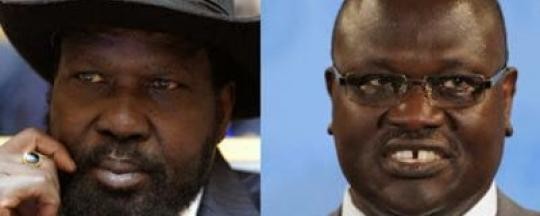A high-level delegation from the African Union Peace and Security Council (PSC) is set to arrive in Juba over the weekend amid escalating political and security tensions that threaten to unravel South Sudan’s fragile 2018 peace agreement.
The three-day mission, scheduled from 10 to 12 August, comes as diplomatic efforts intensify to salvage the Revitalised Agreement on the Resolution of the Conflict in South Sudan (R-ARCSS), which has been undermined by ceasefire violations, political detentions, and a deepening crisis of trust among former warring factions.
According to the Provisional Programme of the Peace and Security Council for August 2025, obtained by Radio Tamazuj, the visit follows the PSC’s 1283rd session, where members expressed alarm over the deteriorating situation in South Sudan, warning of a potential return to full-scale war.
The delegation is expected to assess the crisis firsthand, pressing South Sudan’s Revitalised Transitional Government of National Unity (RTGoNU) to halt hostilities, release political prisoners, and fully implement the peace deal. The council will also meet with civil society groups and regional partners in a bid to revive stalled negotiations.
Edmund Yakani, a prominent civil society activist and executive director of the Community Empowerment for Progress Organization (CEPO), urged the AU delegation to break the political deadlock and prevent further violence.
“The release of political detainees and the resumption of inclusive political dialogue are essential,” Yakani told Radio Tamazuj. “Currently, some parts of the country are witnessing armed violence, which shows South Sudan’s slow descent into chaos.”
He issued a stark warning: “The R-ARCSS is now taking shape as a political framework for justifying armed violence.”
Yakani called on the AU to prove its commitment to “African solutions to African problems” by ensuring a successful transition in South Sudan. “The PSC must act decisively to make the political process succeed,” he said.
Mounting Pressure
The diplomatic push comes as pressure builds on President Salva Kiir’s government to release opposition figures, including First Vice President Dr. Riek Machar, who has been detained in Juba since March 26 despite international calls for his freedom.
On Wednesday, Western embassies—including those of the U.S., U.K., Canada, Germany, Japan, the Netherlands, and Norway—issued a joint statement calling for the release of the detainees and condemning surging violence and attacks on aid workers, warning that the country risks sliding back into full-scale conflict.
South Sudan, which has never held general elections since gaining independence in 2011, postponed its planned vote last year to December 2026, further delaying its democratic transition.
The 2018 peace deal, signed by Kiir, Machar, and other leaders, ended a brutal five-year civil war and established a unity government tasked with drafting a permanent constitution, unifying armed forces, and preparing for elections. Yet, nearly seven years later, key provisions remain unfulfilled, raising fears of another collapse into violence.




